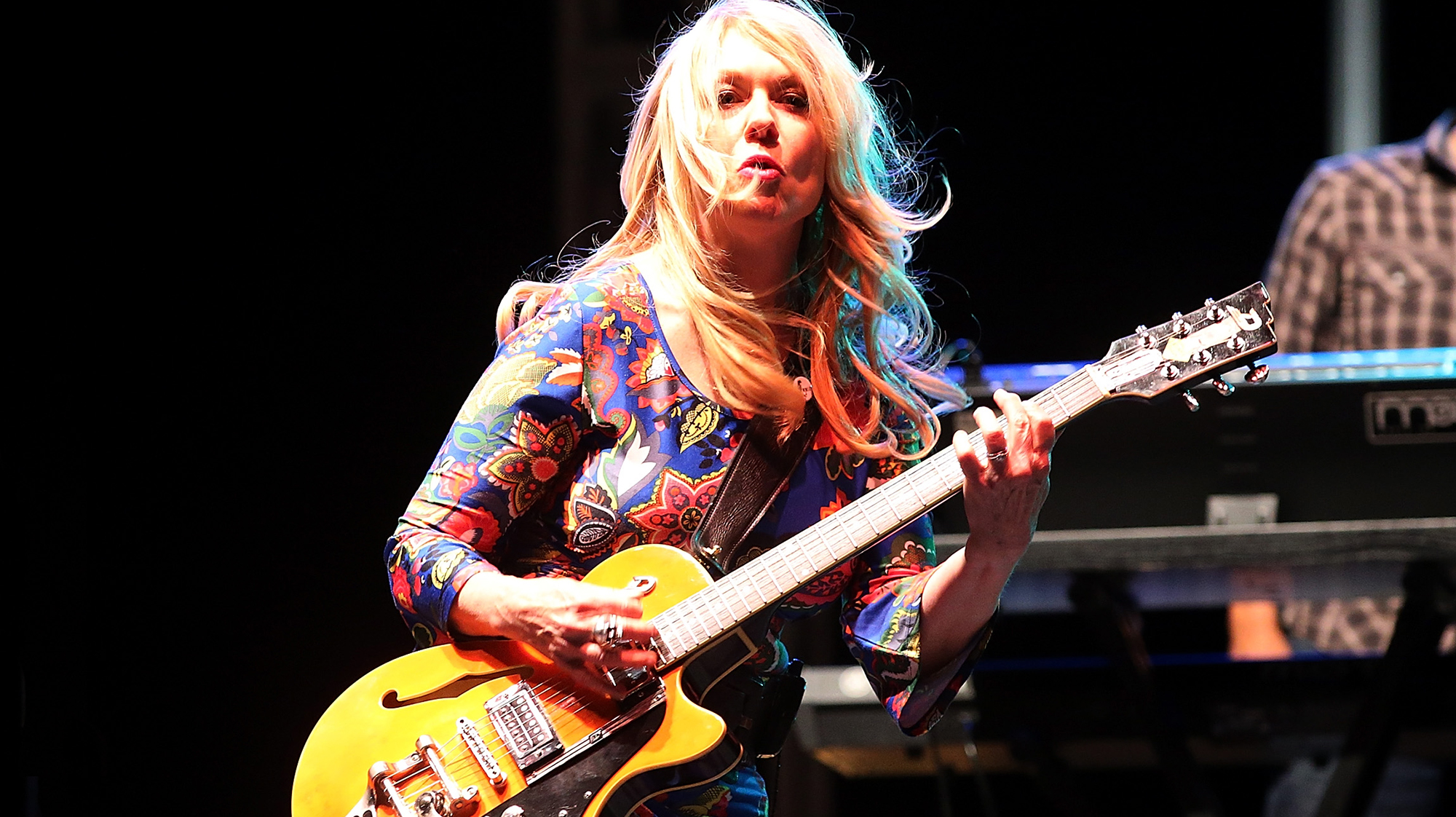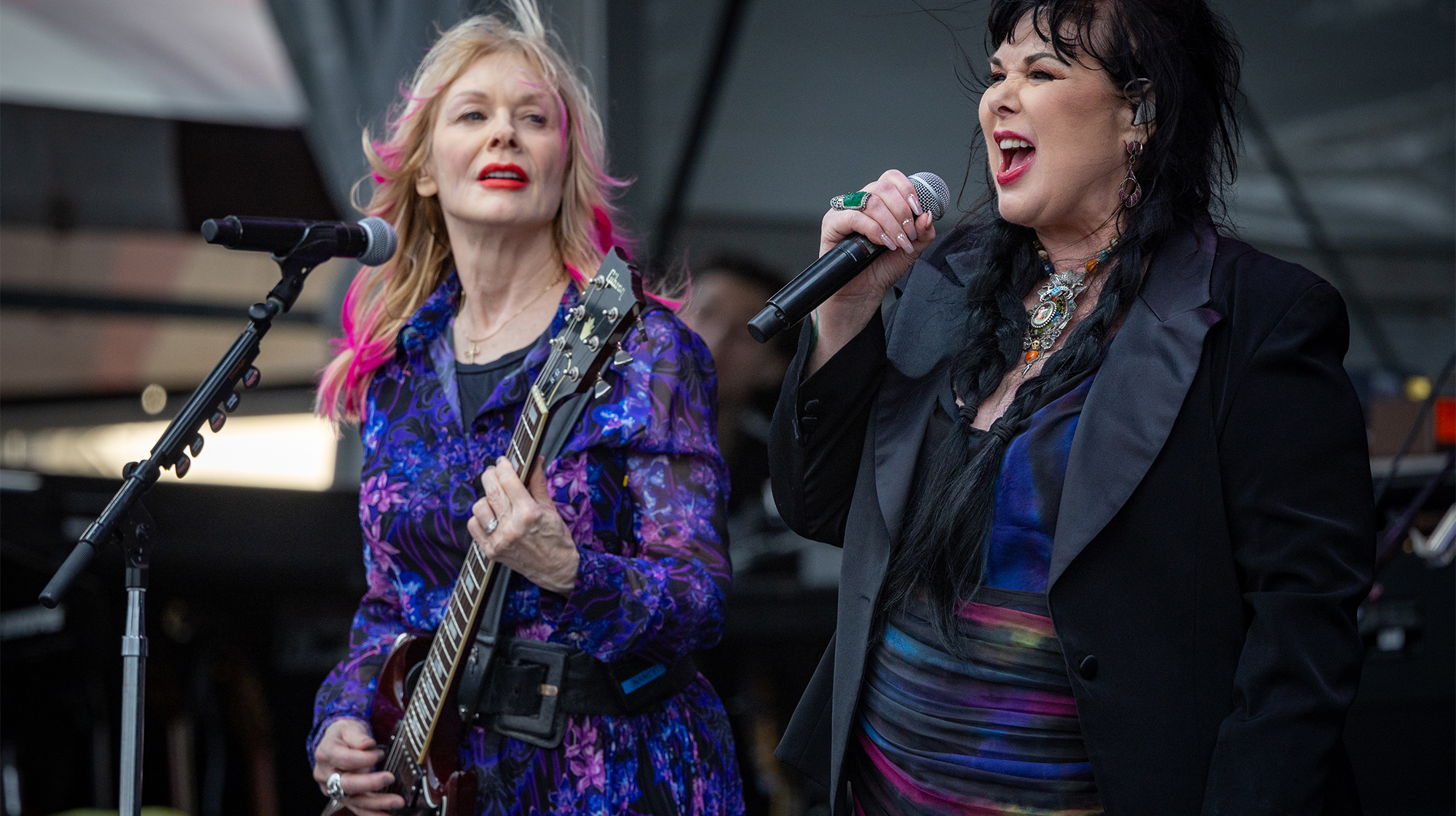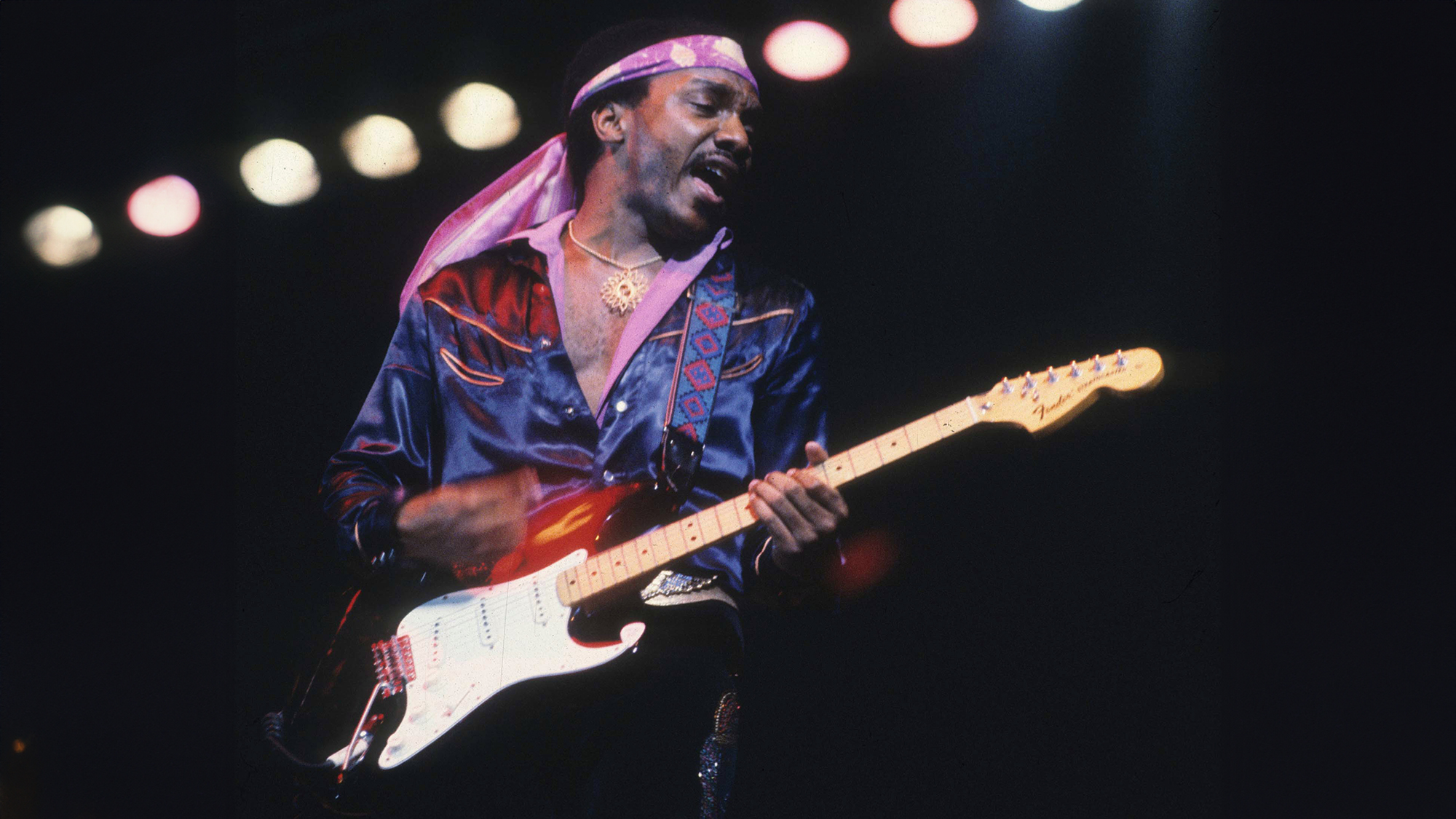“He was one of those guys — a slimeball in a satin jacket.” Nancy Wilson on “Barracuda,” the 1977 Heart hit she blasts Donald Trump for using in his military parade
Wilson said the song is “a powerful piece of music that was never intended for political use”

Heart’s Nancy Wilson knows a thing or two about men with malice in their hearts. Back in the 1970s, the guitarist and her sister Ann wrote a song about a lying scumbag who planted a story that the two founders of Heart had an incestuous relationship.
They called it “Barracuda,” and in 1977 it went on to become a major hit for Heart, one of the most successful female-led groups in rock and roll.
Last Saturday, the Wilson sisters got a new slap in the face when “Barracuda” was used without permission in U.S. president Donald Trump’s military showcase event in Washington, D.C.
WIlson addressed the slight that same day on Instagram.
“Earlier today, during a parade held in support of our nation’s military and organized by President Donald Trump, the song ‘Barracuda’ by Heart was played without permission or authorization from us,” Wilson wrote.
“As daughters of a U.S. Marine Corps major, we hold a deep and abiding respect for the men and women who serve in our Armed Forces,” Wilson continued. “On a day meant to honor that service, it’s important that music used in such settings reflects not only the tone of the event but also the wishes of the artists who created it.🤘🏻”
Reports indicate an instrumental version of the song was among several hits by notable artists played at Trump’s poorly attended, low-energy parade.
Get The Pick Newsletter
All the latest guitar news, interviews, lessons, reviews, deals and more, direct to your inbox!
By contrast, an estimated five million patriots came together in more than 2,100 vibrant “No Kings” rallies around the country to protest Trump’s policies, making it the largest demonstration in the history of the United States, according to the ACLU.
Wilson’s post pointedly included a photo of herself wearing a hat that reads "No kings but us.”
A post shared by Nancy Wilson (@nancywilson)
A photo posted by on
As Wilson has revealed in a previous talk with Guitar Player contributing writer Joe Bosso, “Barracuda” was a platform for the sisters to unleash their rage at the music industry exec who floated the false story about them.
“He was one of those guys — a slimeball in a satin jacket,” Nancy told GP. “We heard about this totally untrue story at a party and were appalled.
“To think that this guy would diminish our musicianship and songwriting by reducing us to these sexual objects. The whole thing was so slimy and salacious, and we weren’t having it.”
It wasn’t only the sisters who were offended; the entire group rallied to the cause, with Nancy’s co-lead guitarist Roger Fisher creating the song’s powerhouse riff and an outline of the musical structure.
“Roger had the riff and kind of a jam on a cassette,” she recalls. “From there, we all sat down and crafted it as a band. We were into groups like Yes, so we wanted to be tricky, with various time signatures flying around.”

The band — which also included co-lead guitarist Howard Leese, bassist Steve Fossen and drummer Michael DeRosier — were working on their third album Little Queen, at Seattle’s Kay-Smith studio when they hooked the song.
“In the case of ‘Barracuda,’ we knew we’d caught a marlin,” Nancy jokes.
The recording got its substantial drawing power from its heady mix of guitars, including Nancy on a Guild acoustic and Fisher and Leese on electric guitars. “They used phase shifters and did some backward tracks by flipping the tape over,” she recalls. “It was incredible.”
But the song’s heart and soul comes from Ann’s volcanic vocals. “Watching Ann sing,” Nancy recalls, “it’s like you’re seeing someone have an out-of-body experience.
“There’s very few singers who can do what she does. It’s magic.”
“Barracuda” rose in the charts within weeks of its release in May 1977, reaching number 11 on Billboard’s Hot 100. It remains a staple of classic rock radio and one of the group’s best-known hits.
Coincidentally, Nancy recently found herself discussing : “Crazy on You,” another Heart hit from the 1970s that conjures up an uncannily familiar feeling these days. In a March 18 interview with The Milwaukee Sentinel Journal, the guitarist explained that the 1975 single was the group’s response to the Vietnam War, still raging at that time.
“We were kind of embarrassed at that time to call ourselves American because of the dirty politics of the Vietnam War,” Wilson told the Journal.
“To be as subtle as possible, it’s more embarrassing now.”
In the same interview, Wilson spoke about “Barracuda” and made a reference to Trump when she noted that the song “is even more relevant in the salacious billionaire culture with the grab-them-by-the-pussy mentality.”
“I think for women in the culture the pendulum will come back again, and there’ll be another renaissance in the arts to push back against the oppression of the cranky old rich white guys,” she added. “I hope I am alive to see that next revolution.”
In related news, Wilson recently celebrated the return of her custom baritone Fender Telecaster after it was stolen from the Hard Rock in Atlantic City on May 30. The guitar was found shortly after police nabbed the suspected thief, Garfield Bennett, a 57-year-old resident of Pleasantville, New Jersey, on Wednesday, May 4. A 1966 Gibson EM-50 stolen from Heart at the same time as the Fender guitar has not yet been recovered.
Christopher Scapelliti is editor-in-chief of GuitarPlayer.com and the former editor of Guitar Player, the world’s longest-running guitar magazine, founded in 1967. In his extensive career, he has authored in-depth interviews with such guitarists as Pete Townshend, Slash, Billy Corgan, Jack White, Elvis Costello and Todd Rundgren, and audio professionals including Beatles engineers Geoff Emerick and Ken Scott. He is the co-author of Guitar Aficionado: The Collections: The Most Famous, Rare, and Valuable Guitars in the World, a founding editor of Guitar Aficionado magazine, and a former editor with Guitar World, Guitar for the Practicing Musician and Maximum Guitar. Apart from guitars, he maintains a collection of more than 30 vintage analog synthesizers.
- Joe BossoContributing Writer

